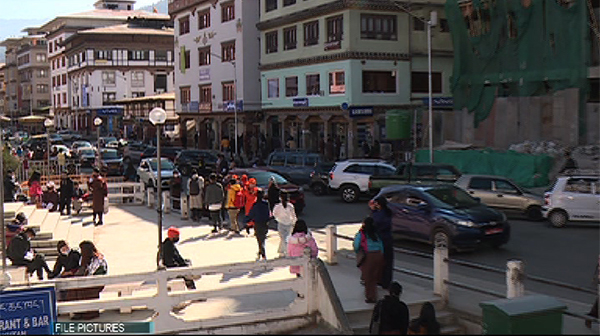 With several COVID-19 vaccines being rolled out across the world, hopes are high that the COVID-19 pandemic can finally be contained. Vaccination in the country is also expected to be carried out next month when the month-long Dhana ends. But the question that remains is how willing is the population?
With several COVID-19 vaccines being rolled out across the world, hopes are high that the COVID-19 pandemic can finally be contained. Vaccination in the country is also expected to be carried out next month when the month-long Dhana ends. But the question that remains is how willing is the population?
Once the COVID-19 vaccines are procured from India, the government hopes to vaccinate more than 500,000 people of the total population. But the decision to get vaccinated or not would remain with the individual person.
And BBS contacted some of the people.
Sherubtse College student, Sangay Tshewang said, “I was delightedZ when I heard we received the vaccine from India last time. Even all my friends are eagerly waiting to get the vaccine.”
“We are grateful to His Majesty for the free vaccines. Most people here are willing to take the jab,” said Sangay Khandu from Sagteng in Trashigang.
“If it’s not beneficial, I don’t think the health ministry will acquire the vaccine. I have full confidence in the vaccine so I will definitely take the jab,” said Chencho from Paro.
Despite some scepticism and lack of information among a few, people welcome the initiative.
“We are villagers and we don’t know much about the vaccine, but we did hear a thing or two about the Coronavirus through BBS. We were also asked if we would take the vaccine or not, and we heard that we have to get the jab. If we don’t get it people will die, so it is better to live than to die,” said Durga Ghalley from Samtse.
“Some people are hesitant but others feel they will get the vaccine since it is a Kidu from the government, whether it helps or not. Even if the vaccine doesn’t help, we feel it won’t harm us. So we will definitely take the jab,” said Karma Gyaltse from Bumthang.
“Since five people from my community tested positive last time, most people here are looking forward to getting vaccinated but few people are doubtful and not too sure. But personally, I have decided to take the jab,” said Sonam Wangchuk from Bumthang.
Covishield is the same as Oxford-AstraZeneca vaccine but manufactured in India. It has proven to be effective in preventing the COVID-19 with the efficacy of 62 per cent after administration of two doses.
“There are different ways. Weakened virus or killed bacteria or virus or some component of the virus or bacteria is given to your body, so your body will know when the real virus or bacteria comes to your body. Now with that, your body will develop an immune system to that particular disease,” said Dr Rui Paulo de Jesus, WHO Representative.
He added that except for pregnant women and children below 18 years of age, all people including those with diabetes, hypertension or any other chronic illness can get the vaccine.
“So far from the trial there is no severe adverse effect of this vaccine. Some reports mentioning about an allergic reaction or even anaphylactic shock, a form of an allergic reaction which is quite severe but I can tell you it happens not only for this vaccine but with any drug. It depends on whether you have an allergy to the vaccine or any other component in the vaccine,” he said.
Once the required number of 1.2 M doses is procured, the government plans to vaccinate all the people together to ensure the same level of immune protection for all.
Yeshi Dorji










